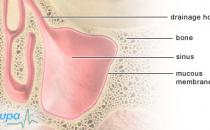Whooping cough
Whooping cough (also known as pertussis) is a bacterial infection that causes a severe, uncontrollable cough. The infection is easily passed on from one person to another. It’s often thought of as a childhood disease, but people of all ages can get it. Children can be given a vaccine to prevent whooping cough.
This factsheet is relevant for both adults who have whooping cough and parents of children with the condition. However, for simplicity we will refer to ‘you’ throughout.
About whooping cough
Symptoms of whooping cough
Complications of whooping cough
Causes of whooping cough
Diagnosis of whooping cough
Treatment of whooping cough
Prevention of whooping cough
About whooping cough
Whooping cough is a bacterial infection that spreads easily between people. The main feature of whooping cough is outbursts of violent coughing. In children (not babies), the coughing may end with a ‘whoop’ noise as they draw in breath.
Whooping cough isn’t as common as it used to be because most children are vaccinated against it. The vaccination doesn't give you life-long protection so you can get the infection as an older child or adult, although the symptoms are usually milder than in babies and young children.
Symptoms of whooping cough
It usually takes between seven and 14 days before symptoms appear after infection, although it can be up to three weeks. This is called the incubation period.
The first symptoms are similar to a common cold. You may feel generally unwell with a runny nose, sneezing, a slight fever and a few days later, a dry cough.
After a week or two, the cough gets worse and you will have episodes of violent coughing which may end with a ‘whoop’ noise as you breathe in. Infants younger than six months are less likely to make the ‘whooping’ sound when they cough. Coughing is often worse at night, making it difficult for you to sleep.
In addition to bouts of coughing, babies and children may also:
- be sick at the end of a coughing episode
- choke on thick mucus in the throat and chest
- stop breathing for short periods of time (known as apnoea) and turn blue from the lack of oxygen
- have difficulty feeding, which can lead to weight loss and dehydration
- go red in the face while coughing
Babies, especially those younger than six months, are most seriously affected by whooping cough. Serious illness is less common in older children. If you catch whooping cough as an adult, symptoms are usually mild and you may have a dry, irritating cough that lasts a few months.
Although not always due to whooping cough, if you or your child have any of these symptoms you should contact your GP.
Complications of whooping cough
Complications don’t happen often, but they are more common in young babies than in older children and adults. Minor complications can include:
- small red spots on the face or chest, abdomen and back caused by tiny blood vessels bursting from coughing
- bleeding into the whites of the eyes, nosebleeds and bruises
- ear infection
More serious complications can include:
- pneumonia (inflammation of the lungs)
- weight loss and dehydration due to vomiting
- pauses in breathing (called apnoea)
- bronchiectasis (widening of the airways)
- a lack of oxygen to the brain which can cause fits and, rarely, brain damage
- an abdominal or inguinal hernia – a lump in the groin or abdomen (tummy) that occurs when part of the intestine pushes through a weakness in the muscles of the abdominal wall
Causes of whooping cough
Whooping cough is caused by a bacterium called Bortedella pertussis. It's highly contagious and is spread from person to person when tiny droplets containing the bacteria are released into the air when an infected person coughs or sneezes.
Diagnosis of whooping cough
Your GP will ask about symptoms and medical history. He or she will usually be able to diagnose whooping cough based on your symptoms, but may also take a sample of mucus or saliva from your nose or throat with a swab, which will be sent to a laboratory to be tested.
Treatment of whooping cough
Your GP may prescribe antibiotics to help prevent the infection spreading to other people. However, even when treated with antibiotics, whooping cough usually still lasts for six to eight weeks. The sooner you are given antibiotics after catching whooping cough, the more effective they will be in fighting the infection and reducing symptoms.
Cough medicines will not help reduce the coughing in whooping cough and you should not give them to children.
Children with severe whooping cough may have to go to hospital so that doctors can monitor them and treat any complications. For example, excess mucus may need to be removed from the throat by suction and babies may need to have fluid through a drip if they can’t feed because of the coughing. More than half of babies under six months with whooping cough need to go to hospital.
Prevention of whooping cough
Vaccination
Children can have a vaccination to prevent them getting whooping cough. The vaccine is called the acellular pertussis vaccine and is given over a series of injections when the child is aged two, three and four months old. It's given along with diphtheria, tetanus, polio and Hib (Haemophilus influenzae type b) vaccines. The combination is called DTaP/IPV/Hib. A pre-school booster is given to children when they are between three and five years old. There is a national immunisation programme in the UK. If you decide not to have your child vaccinated they will be at risk of whooping cough and the other conditions if travelling to other parts of the world that don’t have a vaccination programme.
Even if vaccinated in infancy, immunity decreases over time, so older children and adults can get whooping cough.
Medicines
If you have whooping cough, your GP may offer antibiotics to other family members, especially those under 10 years who have not been vaccinated, or if someone in the house has asthma or an immune system that isn’t working fully. This helps prevent family members catching and spreading it.
This section contains answers to common questions about this topic. Questions have been suggested by health professionals, website feedback and requests via email.
My child has whooping cough. Can he go to school?
Why does my daughter have to have three doses of vaccine? Why can't she be given it all in one go?
Does the vaccine last forever?
My child has whooping cough. Can he go to school?
Answer
You should keep your child home from school or nursery if he or she has whooping cough.
Explanation
Whooping cough is very contagious. The infection can easily spread between children when tiny droplets containing the bacteria are released into the air when an infected child coughs or sneezes.
If you think that your child has whooping cough, you should keep him or her home from school or nursery and visit your GP. If your child has whooping cough, he or she will be given antibiotics and should be kept at home for at least five days after starting the course. You should keep infected children away from their siblings, particularly if they are younger or haven't been immunised.
Adults can also get whooping cough but symptoms tend to be much milder. Even if you feel well enough to go back to work, you must stay at home for five days after starting antibiotics if you work with children who are under five years old, the elderly, or people who have a chronic disease or weakened immune system.
Why does my daughter have to have three doses of vaccine? Why can't she be given it all in one go?
Answer
The pertussis (whooping cough) vaccination is given to your child over three doses because this produces the strongest immune response.
Explanation
Your child will be given a dose of the vaccine when he or she is two, three and four months old. With every dose of vaccine, your child's immune response to the bacterium Bortedella pertussis (which causes whooping cough) is boosted, making your child's immunity to whooping cough stronger.
Does the vaccine last forever?
Answer
No, the vaccine against whooping cough wears off over time. Older children, adolescents and adults can get whooping cough but the infection usually causes milder symptoms than in younger infants.
Explanation
Immunity wears off after a while, so children will be given a pre-school booster when they are between three and five years old.
The vaccination doesn't give you life-long protection, so you may get the infection as an adolescent or adult. However, symptoms in adults are typically milder than those in infants.
Further information
-
Health Protection Agency (HPA)
www.hpa.org.uk
-
NHS Immunisation Information
www.immunisation.org.uk
Sources
- Whooping cough (pertussis). General information. Health Protection Agency. www.hpa.org.uk, accessed 30 November 2009
- Whooping cough. Clinical features. GP Notebook. www.gpnotebook.co.uk, accessed 30 November 2009
- Communicable disease policy on pertussis. Health Protection Agency. www.hpa.org.uk, accessed 9 December 2009
- Whooping cough. Advice and support: Ask Dr Jane. UCL Institute of Child Health. www.ich.ucl.ac.uk, accessed 30 November 2009
- Pertussis. eMedicine. www.emedicine.medscape.com, accessed 30 November 2009
- Pertussis. Treatment and medication. eMedicine. www.emedicine.medscape.com, accessed 3 December 2009
- Pertussis. Follow-up. eMedicine. www.emedicine.medscape.com, accessed 3 December
- Beers MH, Fletcher AJ, Jones TV, et al. The Merck manual of medical information. 2nd ed. New York: Pocket Books, 2003:1564.
- Simon C, Everitt H, Kendrick T. Oxford handbook of general practice. 2nd ed. Oxford 2005:462
- Altunaiji SM, Kukuruzovic RH, Curtis NC, et al. Antibiotics for whooping cough (pertussis) Cochrane Database Sys Rev 2007, Issue 3. DOI: 10.1002/14651858.CD004404.pub3
- DTaP/IPV/Hib. Immunisation. Department of Health. www.immunisation.nhs.uk, accessed 9 December 2009
- Communicable disease policy on pertussis. Health Protection Agency. www.hpa.org.uk, accessed 9 December 2009
Related topics
- Childhood immunisation
- Whooping cough
Related topics
- Childhood immunisation
- Pneumonia
- Tetanus
- Hernia – inguinal
















